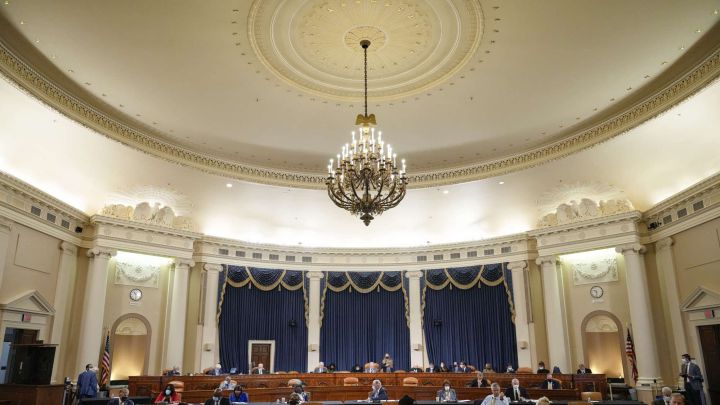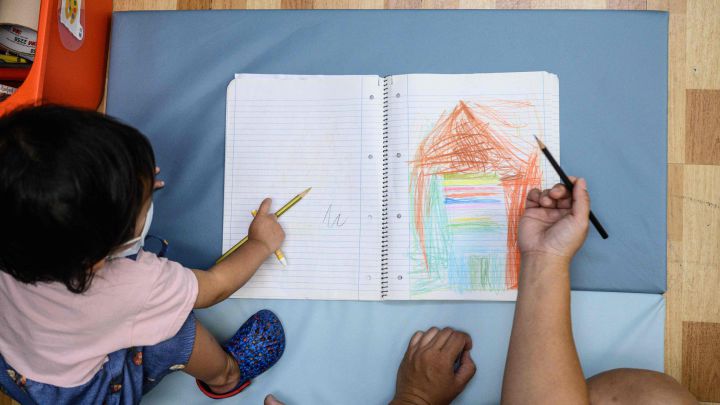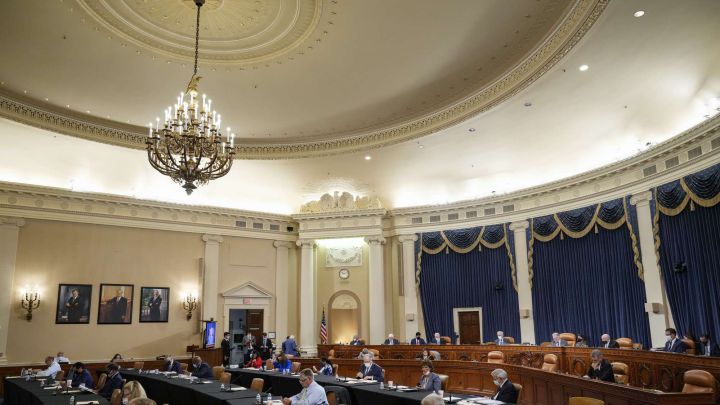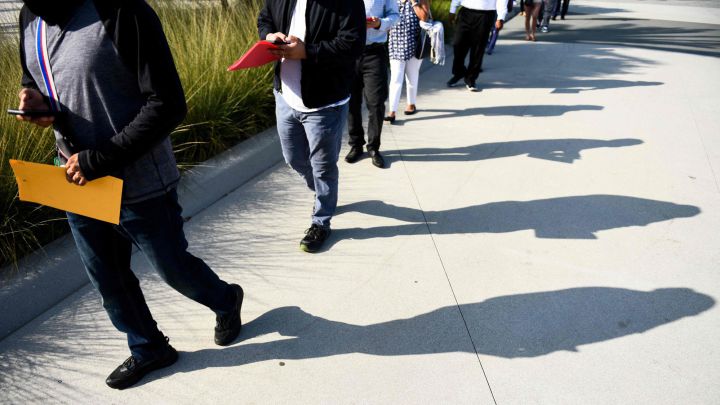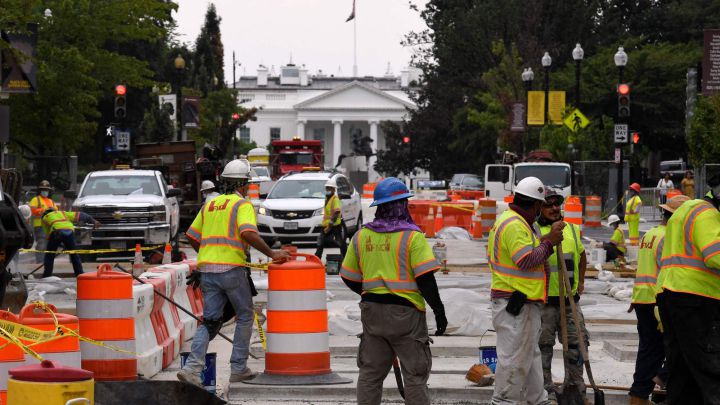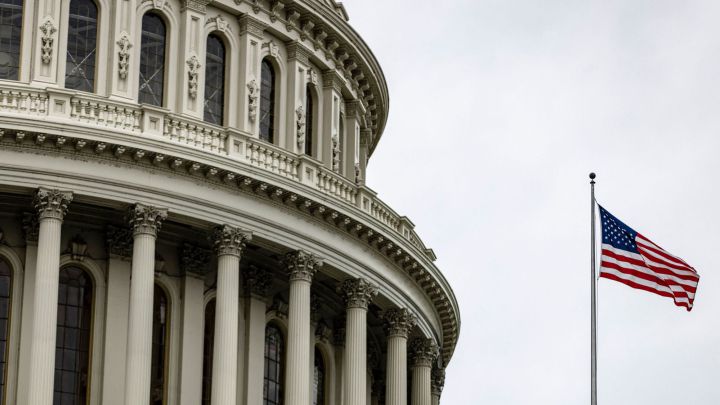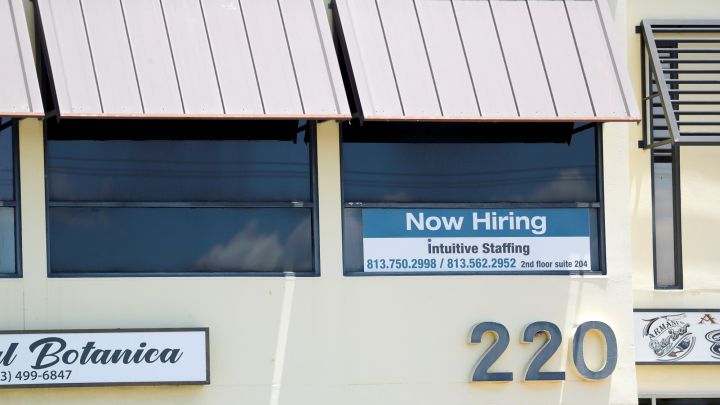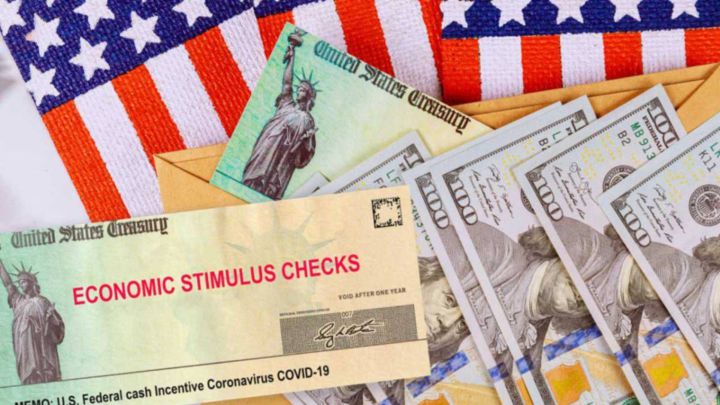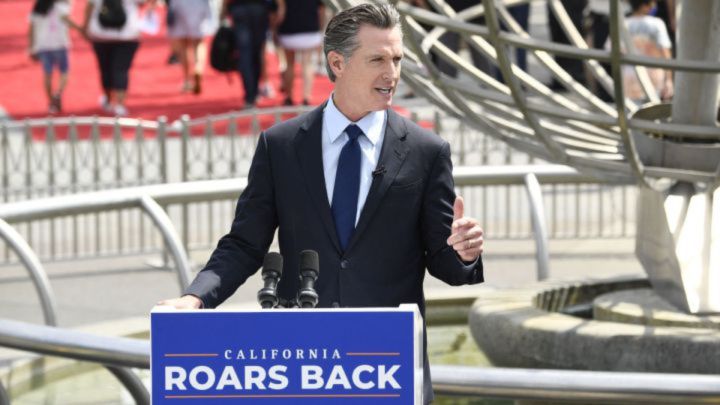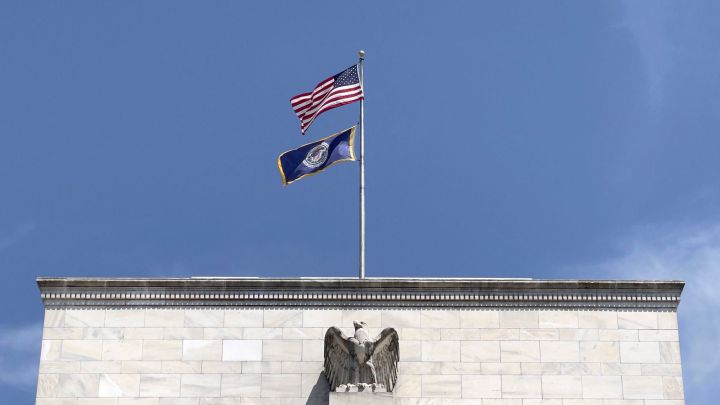Fourth stimulus check news summary: 12 September 2021
Updates and information on related benefits from President Biden's coronavirus relief bill, and news on a potential fourth stimulus check. Sunday 12 September 2021.

Show key events only
US stimulus checks and Child Tax Credit latest news | Sunday 12 September 2021
Headlines
- New details emerge over a fourth stimulus check and the reconciliation bill. (Full story)
- Conservative Democrats hinder chances that the Child Tax Credit be extended. (Full story)
- Many unemployed look for other federal aid available to the jobless. (Full story)
- Senator Manchin proposes work requirement for Child Tax Credit.
- Will the expanded Child Tax Credit be extended through to 2025? (Full story)
- Ways and Means Committee releases details of credits, benefits in $3.5tn reconciliation bill (Full story)
- Some states are distributing their own stimulus payments (Find out more)
Useful information / links
California Golden State Stimulus checks:
- How you can trackyour Golden State Stimulus payment
Unemployment:
- What state schemes are there for Americans who have lost unemployment benefits? (Find out more)
Child Tax Credit:
- IRS due to send out next Child Tax Credit payment on Wednesday 15 September (How to opt out of monthly CTC)
Take a look at some of our related news articles:
Which groups saw an increase in unemployment in August?
According to the Bureau of Labor Statistics, the national unemployment rate hit 5.2%.
However, according to the data a few demographic groups saw increases in unemployment from July to August. These include, teenagers and Black and African American workers.
Overall, the BLS also stated that the "unemployment rates for adult women (4.8 percent), Blacks (8.8 percent), Asians (4.6 percent), and Hispanics (6.4 percent) showed little change over the month."
Read the full report for more details.
Senator Sanders speaks with CNN over how to get the reconciliation bill passed
Joe Manchin has stated he will not vote for a $3.5 trillion package which Sanders said was "absolutely not acceptable" to him, and in his belief the President and the American people.
Want to learn more about the bill? Read our full coverage.
How many people have been impacted by vaccine mandates in the US?
Today on Meet the Press discussed how vaccine mandates, issued in order to sustain the economic recovery have impacted more than one hundred million Americans.
Should more people chose to get vaccinated, the nation will be able to recover more quickly. However, opppositon to these mandates, and vaccines generally has grown.
Which major metropolitan areas saw increases and decreases in unemployment in the from July 2020 to July 2021?
In addition to tracking employment information at the federal and state level, the Bureau of Labor Statistics also tracks job gains in major metro areas.
Compared to data from July 2020, 142 metro areas saw increases in "nonfarm payroll employment." The largest gains, as a percent, were seen in "Ocean City, New Jersey (+21.9 percent), Kahului-Wailuku-Lahaina, Hawaii (+21.1 percent), and Atlantic City-Hammonton, New Jersey (+14.1 percent)." Meanwhile the greatest losses in payroll were seen in "Lake Charles, Louisiana (−2.0%), Enid, Oklahoma and Cleveland, Tennessee (−0.8%).
When looking at gains as the brute number of jobs added, the greatest gains were seen in:
1. New York-Newark-Jersey City, New York-New Jersey-Pennsylvania (+558,300),
2. Los Angeles-Long Beach-Anaheim, California (+359,300),
3. Dallas-Fort Worth-Arlington, Texas (+211,100),
Is federal jobless aid available for long-term unemployed workers?
Is federal jobless aid available for long-term unemployed workers?
Enhanced federal unemployment benefits ended for millions of Americans jobless due to the pandemic, but there are still some who can claim additional aid.Read more.
Representative Ayanna Pressley speaks on the on-going eviction crisis
During a Financial Services Committee hearing the Massachusetts Congresswomen described evictions as "disruptive and violent."
During her testimony she described how the crisis exacerbates "economic injustice for Black families across America."
Why does Senator Joe Manchin believe a strategic pause should be taken in passing the $3.5 trillion reconciliation bill?
West Virginia Senator Joe Manchin stopped by Meet the Press today to discuss his feelings over the emerging reconciliation bill.
Earlier this month, Manchin wrote an op-ed in The Wall Street Journal encouraging his Democratic colleagues to take a "strategic pause," before passing the reconciliation bill.
Manchin's vote would is needed for the legislation to pass as no Republicans. Speaker of the House Nancy Pelosi has publicly stated her disagreement with Manchin, asking him in an news conference which of the popular measures he would like to cut.
Manchin calls the measures included in the bill "social reforms," and said he would not support a $3.5 trillion bill. He has also said there is "urgency" in passing the legislation. However, many Democrats disagree especially as new reports show that many US households find themselves in a precarious economic situation as the federal eviction moratorium has been lifted and millions have lost their unemployment benefits.
Mixed-status families still not receiving Child Tax Credit payments
In order for a child to be eligible for the Child Tax Credit and the advance payments that come with it this year, they must have a Social Security Number and live in the US for over half the year. The IRS automatically enrolled every eligible child that it had on record through tax filings to receive the payments. Those who don’t file taxes could use the agency’s online sign-up tool.
One group of parents that has been having difficulty receiving their monthly payments even though they qualify are mixed immigration status families, some members are US citizens but others are undocumented. The IRS acknowledged that the agency had an “issue” with the July payments and would remedy it for the August payment, sending the two installments together.
Around 1.2 million families have now begun to receive the payments they qualify for but not all. This isn’t the first time these families have had difficulty accessing or been left out of programs that they qualify for.
Corporate America likes Dems spending plan, but they plan to torpedo it
The Democrats $3.5 trillion spending proposal has a lot the Corporate America likes; it could make the US more competitive in the global market, make the workforce more flexible, bring back those that have abandoned the job market increasing workforce participation, and ease some financial burdens on smaller companies increasing competition as well as ease pressures on wage growth. What’s the sticking point then? “Taxes trump policy.”
Will Democrats include another found of stimulus checks in the reconciliation bill?
Read more to find out.
Minnesotans finally seeing tax refunds for taxes paid for federal stimulus they received
After months of waiting Minnesotans who received unemployment benefits and businesses that got PPP loans will finally get a tax refund for state taxes they had paid on that money. The state’s Legislature finally reached an agreement at the end of June to conform state tax provisions to the federal provisions making PPP loans tax-free and granting a waiver on up to $10,200 of jobless aid received in 2020.
Around 540,000 Minnesotans can expect to get a tax refund, with the first 1,000 payments going out this week. But the state hopes to send 50,000 refunds per week by the end of October.
Problems with emergency rental assistant
Rep Alexandria Ocasio-Cortez speaks with Diane Yentel, President and CEO of the National Low Income Housing Coalition, about problems tenants facing eviction are experiencing with the emergency rental assistance. The program approved in December has had a slow rollout is several parts of the country, part of that is due to tenants having difficulty accessing the funds. Reasons range from complicated application forms to landlords not participating.
But even those who do receive funds could still be evicted if the landlord turns down the money granted to a tenant. In defense of landlords not participating, David Schwartz, a landlord himself says that the strings attached to the funds “makes it hard to participate.”
Work requirement for Child Tax Credit payments?
Democrats are proposing to push through Congress a $3.5 trillion reconciliation spending package without any GOP votes. In order for that to happen they will need all 50 votes in the Senate that they have in their caucus but one is putting up a fight. Senator Joe Manchin is placing conditions on his vote for the proposal, one suggestion is that people must work in order to qualify for the advance monthly payments on the Child Tax Credit.
The changes made to the tax credit in the American Rescue Plan and that would be extended in the new spending package dropped the earned income floor which denied the credit to many low-income families. Since the advance payments have started to go out over 3 million children have been pulled out of poverty.
Infrastructure bills: Sen. Manchin on progressives' threat to block the bill
Senator Joe Manchin has called for a pause on Democrats’ $3.5 trillion spending plan and thinks that it wouldn’t be in their interest for progressives in the party to vote against the $1 trillion “hard” infrastructure bill already passed by the Senate and awaiting a vote in the House. “If they can go home... and say I don’t care about hard infrastructure that’s been left, deferred for 30 years... they’ll have to do what they have to do.”
Infrastructure bills: Sen Sanders agrees with progressives
Senator Bernie Sanders, the Budget Committee Chairman, stands by House progressives threat to sink the bipartisan infrastructure bill if Senator Joe Manchin votes against it. “Promises have been made; agreements have been made... two bills go together. At the end of the day, I believe we’re going to pass them both.”
Changes to Child Tax Credit helped those who need it most
The American Rescue Plan, passed in March, made sweeping changes to the Child Tax Credit. The credit became fully refundable allowing those taxpayers to claim the whole credit even if they paid less than the credit in taxes. It also removed the earnings floor whereby parents no longer had to have “earned income” above $2,500 to begin to be able to claim the credit, and they couldn’t receive the full amount of the credit until they reached an earnings threshold over $13,000. This denied the benefits of the tax credit to many low-income families.
The changes made in March were only for one year, meaning the advance payments and the increase in the amount families could claim will end after December. However, if the proposed tax provisions released on Friday by the House Ways and Means Committee are put into law, three fifths of the American public would enjoy the benefits a tax cut until 2025.
IRS warns to be on the lookout for stimulus check scams
The IRS is warning taxpayers to be on the lookout for scams tied to federal stimulus checks after the agency’s Criminal Investigation unit received a record number of reports in June and July. In particular phishing scams where criminals try to trick would-be victims into giving out their personal details or submitting a payment via communications.
The scammers reach out to people through communications that attempt to mirror legitimate ones from the IRS, including text message and email. The IRS reminds everyone that it doesn’t send out unsolicited text messages or emails. Nor does the agency demand taxes be paid through gift cards of cryptocurrency, nor does it utilize threats.
Democrats propose expansion to Child Tax Credit. When could the plan be approved?
The Democrats’ proposal to increase the social safety net through their $3.5 trillion reconciliation budget bill is taking shape. The House Ways and Means Committee which is responsible for writing up the tax provisions released a 645-page portion of their proposal.
Included in the newly released section is a four-year extension of the changes to the Child Tax Credit for the 2021 fiscal year. As well, more children will now be eligible to receive the monthly advance payments with the requirement for a child to have a Social Security Number dropped.
Student loans were supposed to be paused
Forbes - In a nightmare scenario for some student loan borrowers, their wages were taken to pay their student loans — even when this wasn’t allowed to happen. Student Borrower Protection Center, a leading student loans advocacy non-profit, discovered through a Freedom of Information Act (FOIA) request that approximately $40 million in wages were garnished from student loan borrowers, even though the U.S. Department of Education prohibited garnishment of wages to pay student loans during the Covid-19 pandemic.
Imagine for a moment that you’re a student loan borrower. In response to the Covid-19 pandemic, Congress passed the Cares Act — the $2.2 trillion stimulus package — in March 2020 and halted all mandatory federal student loan payments, set interest rates on federal student loans to 0%, and stopped all collection of student loans in default. However, somehow, your wages were improperly garnished to pay your student loans.
Ron DeSantis faces backlash as Florida is ‘the only state not using federal child food aid program'
Florida Democrats have criticised Gov. Ron DeSantis for his “appalling” decision not to reenlist the state into a pandemic-era program to bring federal food aid to 2.1 million children from low-income homes. They argue that DeSantis is blocking Florida’s neediest families from getting about $820 million in child food aid.
Florida took part in the Pandemic Electronic Benefit Transfer (P-EBT) program during the last school year. The state was estimated to have received $1.2 billion for more than a million eligible children who qualified for free or reduced lunch up until June. But Florida didn’t apply for an extension for the 2021-22 school year.
“It is truly appalling that Florida is not taking advantage of a program that will help some of the most vulnerable children in the state,” Rep. Marie Woodson of Hollywood said. “It’s incomprehensible, and it is time we join the rest of the nation in allowing Floridians to benefit from this program.”
"The bottom line is: do we have the urgency to spend another 3.5 trillion dollars right now? The most urgent thing that we have to do, is get the bipartisan infrastructure bill, that's gone left unattended for 30 years. Deferred maintenance throughout every part of our nation. That's the one. That's the bill that should go out immediately".
Arizona's Latino families urged to support infrastructure bill
Community leaders have invited Arizona's Latino community to back their representatives in support of the $3.5 trillion federal infrastructure bill which, if approved, will have a great impact on them in particular. “Both Senator Kyrsten Sinema and Senator Mark Kelly should know the stories of the efforts of thousands of Latino families who struggle every day to get ahead without having the resources for the care of their children or the labor rights that allow them to be absent when they get sick," Rafael Collazo, UnidosUS Action Fund CEO said.
US Senator for Arizona Kyrsten Sinema has said that while she supports many of the goals laid out in the infrastructure bill, she has her concerns about how much it will cost. With Democrats controlling the Senate by just one vote, Sinema’s opposition to the price forces the party to reconsider the figures they would like to spend.
Sen. Joe Manchin calls for "greater clarity" on $3.5 trillion reconciliation bill
Sen. Joe Manchin explained why he won't be supporting President Biden's $3.5 trillion reconciliation package today, in an interview with CNN's Dana Bash on State of the Nation. While Chuck Schumer insists that the bill be press full steam ahead in the Senate this week, Manchin disagreed. "He will not have my vote on 3.5 and Chuck knows that, we've talked about this. We've already put out 5.4 trillion... and we've tried to help Americans in every way we possibly can and a lot of the help that we've put out there is still there and is going to run into next year, 2022. What's the urgency? It's the same urgency we had with the American Rescue Plan. We got that out the door quick and that was two trillion dollars. On top of that, all of the things we did with the CARES package and leading up to that," he explained.
"There's still an awful lot of people that need help but there are 11 million jobs that aren't filled right now - eight million people are still unemployed, something's not matching up. Don't you think we ought to hit the pause? We don't know what's going to happen with this Covid, it's awful, coming back the way it has with a vengeance. We don't know about inflation - we know it's running rampant right now... A on top of the geopolitical changes we are going to have, shouldn't we be prepared?"
Child Tax Credit reduced poverty by 25% in July
Some interesting data showing the effects of the expanded Child Tax Credit since monthly payments were introduced this summer. In July, poverty was down by 25% and would have been reduced to 40% had every eligible child received a payment.
What is TANF?
Temporary Assistance for Needy Families (TANF) is a government program which provides grant funds to states and territories to provide families with financial assistance and related support services. TANF provides states and territories with flexibility in operating programs designed to help low-income families with children achieve economic self-sufficiency. States use TANF to fund monthly cash assistance payments to low-income families with children, as well as a wide range of other services.
This program does not directly offer cash assistance to individual citizens, but instead provides financial grants to states who use their TANF grants to fund monthly cash assistance payments to low income families with children. This monthly assistance aims to support needy families and end dependence cycles by promoting job preparation and work.
To be eligible for TANF, you must be a resident of the state in which you apply, have a child 18 years of age or younger, be pregnant.
Find out more about TANF in your state and whether you are eligible for aid here
Will the Child Tax Credit be extended to 2025?
After just one monthly Child Tax Credit payment was sent out in July, 3.3 million children were lifted out of poverty, and Democrats are now looking to extend the expanded scheme until 2025.
Can I receive a second Golden State Stimulus in California if I got the first payment?
The California Comeback Plan, which approved a new round of stimulus checks for more residents of the state, will also see some Californians getting a second payment.
Why are businesses struggling to hire even though unemployment is high?
On paper, the poor August jobs report does not make sense considering the millions of jobs available, but the answers point to varied reasons.
Is there a limit of children a family can claim for the $3,000 to $3,600 Child Tax Credit?
Regardless the size of a family, every eligible child seventeen or younger at the end of 2021 in that household can receive the expanded Child Tax Credit.
What's included in the Democrats' plan for the Child Tax Credit and energy tax credit extension?
Late this week, the House of Representatives Ways and Means Committee released new details on various aspects of the $3.5 trillion reconciliation bill, including those related to energy tax credits and the expanded child tax credit.
Stimulus checks: every AS article
In our dedicated stimulus checks section, you’ll find a range of news articles on a potential fourth direct payment, as well as information on similar aid measures such as the Golden State Stimulus check currently going out in California.
Where is the second $600 Golden State stimulus check? How can I track its status?
For Californians eligible for the second Golden State Stimulus check, here's how to track the payment.
Is federal jobless aid available for long-term unemployed workers?
Enhanced federal unemployment benefits ended for millions of Americans jobless due to the pandemic, but there are still some who can claim additional aid.
Child Tax Credit: useful tools (CTC)
You’ll find a helpful Child Tax Credit FAQs page on the IRS website, with questions and answers on a range of topics including eligibility, calculating your credit and unenrolling from monthly payments.
The IRS has also put together this video explainer on the CTC:
How much were the first, second and third stimulus checks and when were they sent out?
There have so far been three federal stimulus checks for qualifying Americans since the coronavirus pandemic began early last year.
Child Tax Credit: useful tools
There are a number of online IRS tools for households looking to claim the monthly Child Tax Credit.
The Child Tax Credit Eligibility Assistant allows you to check whether you qualify for monthly payments, while the Child Tax Credit Update Portal can be used to see if you’re enrolled, as well as to unenroll from the program, update your bank/contact details and view your payments.
Meanwhile, parents who do not submit a tax return can register for the scheme using the Child Tax Credit Non-filer Sign-up Tool.
Will the Child Tax Credit be extended to 2025?
Late this week, the House of Representatives Ways and Means Committee released a statement informing the public that lawmakers have decided to include an extension of the credit's current structure in a $3.5 trillion reconciliation package
Next Child Tax Credit payment to go out on 15th
The IRS is due to distribute the third monthly Child Tax Credit payment on Wednesday 15 September, with eligible households receiving up to $300 per child.
The deadline to unenroll from September's CTC payment was on 30 August, but parents who want to opt out of the program before next month's money goes out have until 11:59 pm EDT on Monday 4 October to do so.
Which states have new stimulus payments in September?
Although a fourth stimulus check doesn’t look likely in September, some states will be sending certain residents a little extra money this month.
Stimulus checks and Child Tax Credit live updates: welcome
Hello and welcome to our live blog on Sunday 12 September 2021, bringing you the latest updates on a potential fourth stimulus check, as well as information on the new, expanded Child Tax Credit.
We'll also provide you with news on other economic-aid measures in the US, such as unemployment benefits and California's program of Golden State Stimulus checks.
- Coronavirus stimulus checks
- USA coronavirus stimulus checks
- IRS
- Joseph Biden
- Covid-19 economic crisis
- Child poverty
- Science
- Unemployment
- United States Congress
- Coronavirus Covid-19
- Economic crisis
- Pandemic
- Coronavirus
- Recession
- Poverty
- Inland Revenue
- Economic climate
- Virology
- Outbreak
- Infectious diseases
- Childhood
- Employment
- Diseases
- Microbiology
- Public finances
- Medicine
- America
- Economy
- Social problems
- Work
- Biology
- Health
- Society
- Finances
- Life sciences
